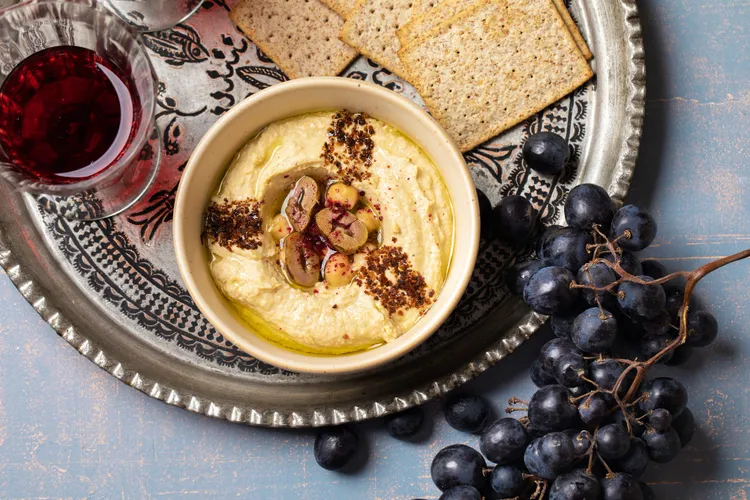How Food Affects Sports Performance: Fuel Your Body for Peak Results
Whether you’re a weekend warrior, a competitive athlete, or someone simply aiming to improve your fitness, what you eat plays a massive role in your sports performance. Food is more than just sustenance - it’s the fuel that powers your muscles, sharpens your focus, and supports recovery. From providing energy for a sprint to aiding muscle repair after a tough workout, the right nutrition can make the difference between a personal best and a lackluster performance.

Why Nutrition Is Critical for Sports Performance
Your body is like a high-performance engine, and food is the fuel that keeps it running. The quality, quantity, and timing of what you eat directly impact:
- Energy Levels: Carbohydrates and fats provide the energy needed for endurance and intensity.
- Muscle Function and Recovery: Protein supports muscle repair, growth, and strength.
- Mental Focus: Nutrients like omega-3s and B vitamins enhance cognitive performance and reaction time.
- Endurance and Stamina: Proper fueling prevents fatigue and sustains performance during long sessions.
- Injury Prevention: Micronutrients like calcium and vitamin D strengthen bones and tissues.
- Hydration: Fluid and electrolyte balance are crucial for optimal muscle function and heat regulation.
Poor nutrition, on the other hand, can lead to fatigue, reduced strength, slower recovery, and even increased risk of injury. Let’s break down how specific nutrients and dietary strategies influence sports performance and how you can harness food to reach your athletic goals.
The Role of Macronutrients in Sports Performance
Macronutrients - carbohydrates, proteins, and fats - are the cornerstone of an athlete’s diet. Each plays a unique role in fueling, building, and sustaining your body during physical activity.
- Carbohydrates: Your Body’s Primary Fuel
- Why They Matter: Carbs are the body’s preferred energy source, stored as glycogen in muscles and the liver. Glycogen powers high-intensity activities like sprinting, weightlifting, or endurance sports. Low carb intake can lead to early fatigue and reduced performance.
- How They Affect Performance:
- Endurance: Adequate glycogen stores improve stamina for long-distance running, cycling, or swimming.
- High-Intensity Efforts: Carbs fuel explosive movements like sprints or heavy lifts.
- Mental Clarity: Glucose from carbs supports brain function, aiding focus and decision-making.
- Best Sources:
- Complex carbs: Whole grains (brown rice, quinoa, oats), sweet potatoes, whole-grain pasta.
- Simple carbs (for quick energy): Bananas, dates, sports drinks (during or post-workout).
- How Much You Need: Athletes need 5-12 g of carbs per kg of body weight daily, depending on training intensity (e.g., 300–720 g for a 60 kg athlete). Endurance athletes need more, while strength athletes may need less.
- Pro Tip: Eat complex carbs 2-3 hours before exercise for sustained energy, and simple carbs during or after for quick glycogen replenishment.
- Protein: The Building Block of Muscle
- Why It Matters: Protein provides amino acids to repair and build muscle tissue damaged during exercise. It also supports recovery, immune function, and hormone production.
- How It Affects Performance:
- Muscle Repair: Speeds recovery from microtears caused by resistance training or high-impact sports.
- Strength Gains: Supports muscle growth for improved power and performance.
- Satiety: Helps maintain a healthy body composition by keeping you full and reducing overeating.
- Best Sources:
- Animal-based: Lean meats (chicken, turkey, beef), fish, eggs, Greek yogurt.
- Plant-based: Lentils, chickpeas, tofu, tempeh, hemp seeds.
- How Much You Need: Athletes need 1.2-2.0 g of protein per kg of body weight daily (e.g., 72-120 g for a 60 kg athlete). Spread intake evenly across meals for optimal muscle synthesis.
- Pro Tip: Consume 20-30 g of protein within 30-60 minutes post-workout to maximize muscle repair.
- Fats: The Long-Burn Energy Source
- Why They Matter: Fats provide a steady energy source for low- to moderate-intensity activities (e.g., long-distance running or cycling). They also support hormone production (like testosterone) and nutrient absorption.
- How They Affect Performance:
- Endurance: Fats fuel prolonged, lower-intensity efforts when glycogen stores run low.
- Joint and Tissue Health: Omega-3 fatty acids reduce inflammation, aiding recovery and reducing injury risk.
- Energy Stability: Healthy fats prevent energy crashes during long training sessions.
- Best Sources:
- Unsaturated fats: Avocados, nuts, seeds, olive oil, fatty fish (salmon, mackerel).
- Saturated fats (in moderation): Coconut oil, grass-fed butter.
- How Much You Need: Fats should make up 20-35% of total calories, with a focus on healthy fats. Avoid trans fats, which can increase inflammation.
- Pro Tip: Include fats in pre-workout meals 2-3 hours before exercise to avoid digestive sluggishness during activity.
Micronutrients That Boost Performance
While macronutrients provide energy and building blocks, micronutrients fine-tune your body’s performance, supporting everything from bone health to oxygen transport.
- Iron
- Why It Matters: Iron is essential for hemoglobin production, which carries oxygen to muscles. Low iron levels can cause fatigue, reducing endurance and strength.
- Best Sources: Red meat, spinach, lentils, pumpkin seeds, fortified cereals.
- Pro Tip: Pair iron-rich foods with vitamin C (e.g., spinach with bell peppers) to enhance absorption, especially for women with menstrual blood loss.
- Calcium and Vitamin D
- Why They Matter: Calcium strengthens bones, while vitamin D aids calcium absorption and supports muscle function. Deficiencies increase the risk of stress fractures and muscle cramps.
- Best Sources:
- Calcium: Dairy, fortified plant milk, kale, almonds.
- Vitamin D: Fatty fish, egg yolks, fortified foods, sunlight exposure.
- Pro Tip: Aim for 1,000-1,300 mg of calcium and 600-800 IU of vitamin D daily, adjusting based on age and activity level.
- Magnesium
- Why It Matters: Magnesium supports muscle relaxation, energy production, and nerve function. It can reduce cramps and improve recovery.
- Best Sources: Nuts, seeds, whole grains, leafy greens, dark chocolate.
- Pro Tip: Include magnesium-rich snacks like almonds or pumpkin seeds post-workout to aid muscle recovery.
- B Vitamins
- Why They Matter: B vitamins (like B6, B12, and folate) support energy metabolism and red blood cell production, enhancing endurance and focus.
- Best Sources: Whole grains, eggs, meat, spinach, bananas.
- Pro Tip: Vegetarians may need B12 supplements or fortified foods to meet needs.
Hydration: The Unsung Hero of Performance
Water makes up 60% of your body and is critical for every aspect of sports performance. Dehydration - even as little as 2% body weight loss - can impair strength, endurance, and focus.
- Why It Matters:
- Regulates body temperature during exercise.
- Transports nutrients to muscles and removes waste products.
- Maintains blood volume for efficient oxygen delivery.
- How to Stay Hydrated:
- Drink 500-600 mL of water 2-3 hours before exercise, and 150-300 mL every 15-20 minutes during.
- For intense sessions over 60 minutes, use electrolyte drinks (containing sodium, potassium) to replace losses.
- Monitor urine color: Pale yellow indicates good hydration.
- Pro Tip: Add a pinch of salt and a squeeze of lemon to water for a natural electrolyte boost during long workouts.
Timing Your Nutrition for Optimal Performance
When you eat is just as important as what you eat. Proper nutrient timing maximizes energy, performance, and recovery.
- Pre-Workout Nutrition (2-3 Hours Before)
- Goal: Provide sustained energy without digestive discomfort.
- What to Eat: A balanced meal with carbs, protein, and moderate fat.
- Example: Oatmeal with Greek yogurt and berries, or a turkey sandwich on whole-grain bread with avocado.
- Quick Option (30-60 Minutes Before): A small, carb-heavy snack like a banana or a slice of toast with jam.
- During Exercise (For Sessions >60 Minutes)
- Goal: Maintain energy and hydration.
- What to Eat/Drink: Simple carbs and electrolytes (e.g., sports drinks, energy gels, or a banana).
- Pro Tip: Aim for 30-60 g of carbs per hour during endurance activities.
- Post-Workout Nutrition (Within 30-60 Minutes)
- Goal: Replenish glycogen, repair muscles, and rehydrate.
- What to Eat: A mix of carbs and protein in a 3:1 ratio.
- Example: A smoothie with whey protein, banana, and almond milk, or grilled chicken with sweet potato and steamed veggies.
- Pro Tip: Include a small amount of fat (e.g., nuts) to reduce inflammation without slowing digestion.
Foods and Habits to Avoid for Optimal Performance
Certain foods and habits can hinder your athletic performance:
- High-Sugar Junk Foods: Cause energy spikes and crashes, reducing stamina.
- Excessive Caffeine: Can dehydrate or cause jitters, impairing focus.
- Heavy, Fatty Meals Before Exercise: Slow digestion and cause discomfort.
- Alcohol: Impairs recovery, dehydrates, and reduces muscle repair.
- Under-Eating: Leads to low energy, poor performance, and increased injury risk.
Common Questions About Food and Sports Performance
Q: Can I eat junk food and still perform well? A: Occasional treats won’t derail you, but regular junk food can lead to nutrient deficiencies, energy crashes, and poor recovery. Prioritize whole foods for consistent performance.
Q: Do I need supplements to boost performance? A: Whole foods should be your primary source, but supplements like whey protein, creatine (for strength), or omega-3s can help if diet alone isn’t enough. Consult a dietitian for personalized advice.
Q: How do I avoid stomach issues during exercise? A: Avoid high-fat, high-fiber, or spicy foods 2-3 hours before exercise. Test pre-workout meals in training to find what works for your body.
Food is a powerful tool for enhancing sports performance, providing the energy, strength, and recovery needed to excel. By prioritizing the right balance of carbohydrates, proteins, fats, and micronutrients - and timing your meals strategically - you can fuel your body for peak results. Whether you’re running a marathon, lifting weights, or playing a team sport, a well-planned diet tailored to your needs can elevate your game. Experiment with the foods and strategies in this guide, listen to your body, and consult a sports dietitian for personalized advice. Here’s to eating smart and performing at your best!
Disclaimer: This post is for informational purposes only. Consult a healthcare professional or registered dietitian for personalized nutrition advice, especially if you have medical conditions, dietary restrictions, or specific athletic goals. Always prioritize food safety and proper hydration.









